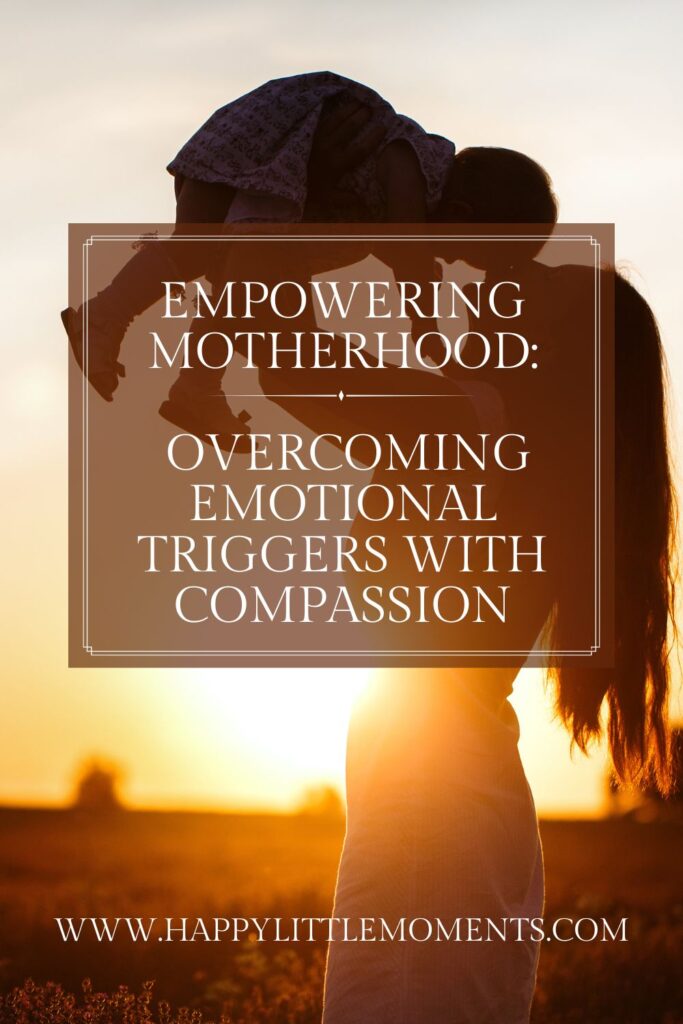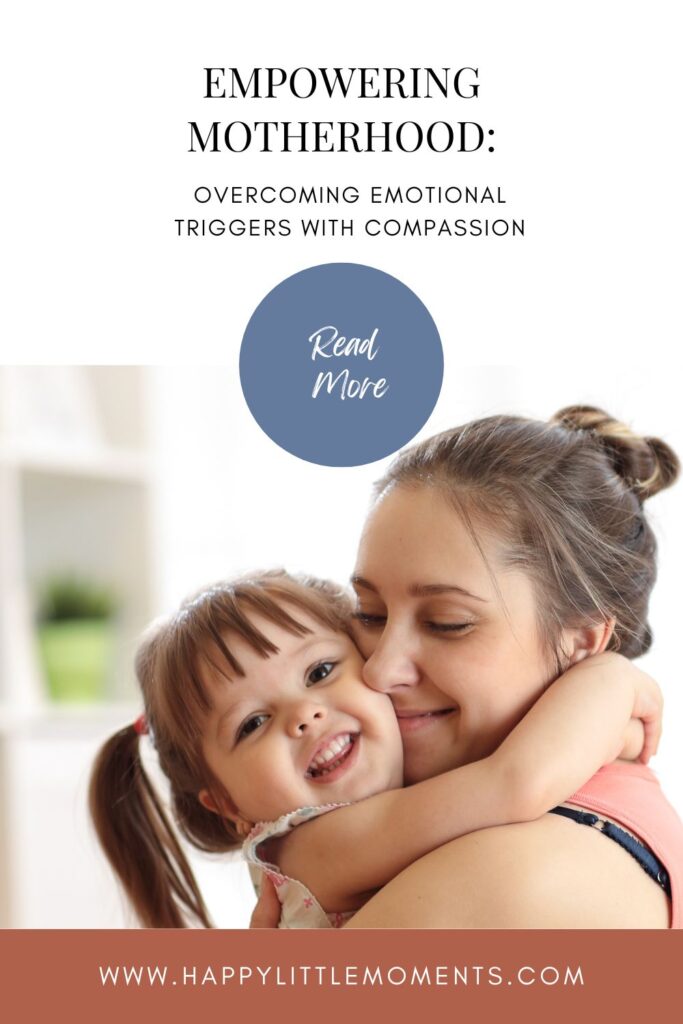Empowering Motherhood: Overcoming Emotional Triggers with Compassion
Overcoming emotional triggers as a mother is one of our most significant challenges in motherhood. The truth is that our children have an uncanny ability to pick up on our emotional cues, responding differently when they sense we’re triggered by their behavior. It’s almost like children have a built-in radar for our emotional states. As we are pulled in every direction, mastering our emotional triggers can become one of our greatest assets.
So, how do we start building the mental strength to conquer our emotional triggers in motherhood? The answer lies in developing emotional strength, a journey that requires time, patience, and personal growth. Let’s dive in if you’re ready to embark on this transformative journey!
No time to read this post at the moment? Click here to save to your Pinterest!
What is emotional Strength
There are many facets of mental and emotional strength, demanding that we manage all the various emotional challenges we encounter in motherhood. This journey requires having a multitude of tools in your tool belt, including resilience, patience, adaptability, empathy, self-awareness, boundary setting, and support.
Building emotional strength as a mother involves a combination of self-awareness, self-care, and intentional practices. Here are some practical ways a mother can work on building emotional strength.

10 Practical Strategies to Overcoming Emotional Triggers and Building Emotional Strength:
- Self-reflection: Reflecting on your reactions, responses, and emotional triggers will help you build your self-awareness regarding your interactions with your child. Meditating and journaling are helpful tools for building self-awareness in your life. Ask yourself questions, such as, how could I have handled that situation differently? What would my child’s response have been if I reacted more mindfully?
- Mindfulness and meditation: Practicing meditation helps you stay present in the moment and builds the muscle that gives you pause before reacting. Meditation also helps you build emotional awareness, as unexpected emotions may arise during your practice. Mindfulness practices give you space to handle those emotions in a safe space. Regular meditation can also help manage stress and promote emotional balance.
- Seek support: Build a support network of friends, family, or other mothers who can offer empathy, advice, and encouragement. If you don’t have family nearby, you can find these groups in your community through your child’s school, child care center, working groups, book clubs, local online forums, or churches. Remember, everyone else in the room is afraid to “make the first friendship move.” Be the one that talks to the fellow mom at child care pickup. If you don’t vibe, don’t let that discourage you. Keep being the one to start conversations until you find other moms you connect with on a personal level. As you develop your network, ask them for help when you need it and be willing to help others when you can. People are social beings, so we generally like helping each other out and building our communities.

You can't pour from an empty cup. Take care of yourself first." - Author Unknown
- Self-care: Prioritize self-care activities that nurture your emotional health, such as exercise, getting enough sleep, spending time in nature, or engaging in hobbies you enjoy. Having a regular morning and/or nightly self-care routine is a great way to ensure you make time for yourself every day.
- Practice self-compassion: Be kind and compassionate toward yourself, especially during challenging times. Acknowledge that it’s okay to make mistakes and that you’re doing your best. If you struggle with your self-confidence, learning affirmations and meditating can be extremely useful. Work on your own self-talk. And when your brain inevitably starts negative self-talk, simply correct it with words of encouragement. Over time, negative self-talk will reduce and be replaced by positive self-empowerment.
- Emotional regulation techniques: Learn and practice techniques for managing emotional triggers. Practice pausing and taking a deep breath. Work on consciously relaxing muscles when you feel them tensing up. Visualization exercises can also be effective, allowing you to envision yourself handling situations with composure and grace.
"One of the most important gifts we can give our children is to teach them how to respect their own boundaries and the boundaries of others." - Brene Brown
- Healthy boundaries: Having healthy boundaries protects your emotional well-being. Reflect on your current commitments and boundaries. Do they allow you adequate time for things you enjoy? If you’re constantly on the go or allowing others to intrude too much on your time, evaluate how you can set better boundaries for your life. This may involve saying no to excessive commitments or setting limits on your time and energy.
- Set realistic expectations: Avoid placing unrealistic expectations on yourself as a mother. No parent is perfect, and no child should see their parent as trying to pretend to be perfect. Accept that parenting has its ups and downs, you’ll make mistakes, and it’s normal to experience a range of emotions along the way.
- Communication skills: Improve your communication skills to express your emotions effectively and assertively. This helps resolve conflicts and build stronger relationships with your children and others. There are many books on learning better communication with children, but the ones I recommend are How to Talk so Kids Will Listen and Listen So Kids Will Talk, How to Talk So Little Kids Will Listen, The Whole Brain Child, and No-Drama Discipline.
- Cultivate gratitude: Create space for being grateful in your life. Focus on the things you’re grateful for, even during difficult times. If you’re struggling to see all the good things in your life, start a gratefulness journal. Write down 3-5 simple things you’re grateful for every day. Practicing gratitude can shift your perspective and enhance your overall sense of well-being.
By nurturing your own emotional strength, you’re not just shaping your own experience of motherhood; you’re crafting a profound example for your children. By demonstrating resilience, self-awareness, and compassion, you equip them with invaluable tools to navigate life’s challenges. As you go through this journey of self-discovery and growth, remember that each step you take toward healing your emotional triggers transforms your own life and impacts the hearts and minds of your children. Your example of emotional strength will guide them toward a future with greater courage and resilience.
Save this post for later! Click here to save it to your Pinterest Account! Follow Happy Little Moments Moms on Pinterest, Instagram, and Facebook for more great content!



